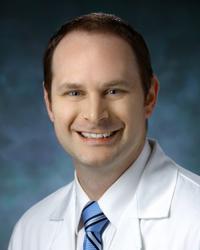Loading Complete

Ryan Felling, MD, PhD
Pediatric Stroke Neurology
Pediatric Neurology
Neurology
31 Insurances Accepted
View allAbout
Professional Titles
Primary Academic Title
Background
Leadership Title
Recent News Articles and Media Coverage
Research Interests
PubMed
Selected Publications
Honors
Lectures & Presentations
Expertise
Education
Johns Hopkins University School of Medicine
Fellowship, Vascular Neurology, 2013Johns Hopkins University School of Medicine
Residency, Pediatric Neurology, 2012Children's Hospital of Philadelphia
Residency, Pediatrics, 2009Pennsylvania State University College of Medicine
Medical Education, MD, 2007Pennsylvania State University College of Medicine
Graduate School, PhD, 2006Board Certifications
Vascular Neurology
American Board of Psychiatry and Neurology, 2014Insurance
Johns Hopkins providers participate in many commercial health insurance plans. To confirm coverage of your specific physician or provider, please contact your insurer directly. For more details, please review our Insurance Information.
Search plans
- Aetna
- Amerigroup District of Columbia
- AmeriHealth Caritas District of Columbia
- Beech Street
- Blue Cross Blue Shield Federal Employee Program (FEP)
- CareFirst
- Cigna
- Evernorth Behavioral Health
- First Health
- Geisinger Health Plan
- HealthSmart/Accel
- Humana
- JAI Medical Systems
- Johns Hopkins Health Plans
- Kaiser Permanente
- KeyCare
- Maryland Physicians Care
- Medicaid Maryland
- Medicare Maryland
- MedStar Family Choice District of Columbia
- MultiPlan
- Pennsylvania's Preferred Health Networks (PPHN)
- Point Comfort Underwriters
- Private Healthcare Systems (PHCS)
- Provider Partners Advantage HMO SNP Medicare Advantage
- South Central Preferred (SCP)
- Superior Vision
- TRICARE (Humana Military East)
- UnitedHealthcare
- Veteran Affairs Community Care Network (Optum-VACCN)
- Wellpoint (Amerigroup MD)
